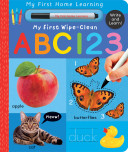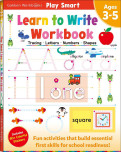We use cookies to make your experience better. To comply with the new e-Privacy directive, we need to ask for your consent to set the cookies. Learn more.
Updated and revised in 2023, this longtime homeschool favorite has been streamlined into a 5-level course with separate Student Worktexts and Instructor Handbooks for each level. For students in as early as Grade 4, the new edition of Analytical Grammar (published by Demme® Learning) combines the content of Junior Analytical Grammar and Mechanics, Analytical Grammar; and Review and Reinforcement. Each of the 5 levels is self-contained and leads systematically into the next, beginning first with Grammar Basics; then Mechanics; Parts of Speech, Phrases & Clauses; and finally, Punctuation and Usage. Each level utilizes an Instructor Handbook and a Student Worktext (purchase separately or as Universal Sets). The Instructor Handbook includes a suggested schedule, a Getting Started guide, expanded notes, and student inset pages with answers. The Student Worktext features expanded and revised lesson notes, updated exercises, assessments, and Application & Enrichment activities (in Levels 3-5) and assessments. Check the available placement test PDF to help place your student in this New Edition.
The prior edition is now out of print with remaining quantities limited. The original edition was made up of several different programs: Jr Analytical Grammar, Jr Analytical Grammar Mechanics, Analytical Grammar; High School Review and Reinforcement; and Beyond the Book Report. The original Analytical Grammar was written for Grades 6 and up. This course was designed to complete each of the three, ten-week "Seasons," one each in Grades 6, 7, and 8. Parts of speech, phrases/clauses and punctuation are covered in these "Seasons." Then, after a season was completed, students engaged in consistent, bi-weekly review. The original Jr. Analytical Grammar, designed for Grades 4-5, provided preparation in parts of speech (Grammar) and punctuation (Mechanics). These two Junior courses prepared the student well for the middle school program. The High School Review assumes a solid foundation of grammar, and provides 18 reinforcement exercises (one every 2 weeks), with sentences to practice parsing, grammar analysis, and copy editing. These courses dovetail nicely with literature studies. Beyond the Book Report is a companion program to Analytical Grammar that provides literature and writing (and is still in publication) and can also be used with the new edition of Analytical Grammar.


















